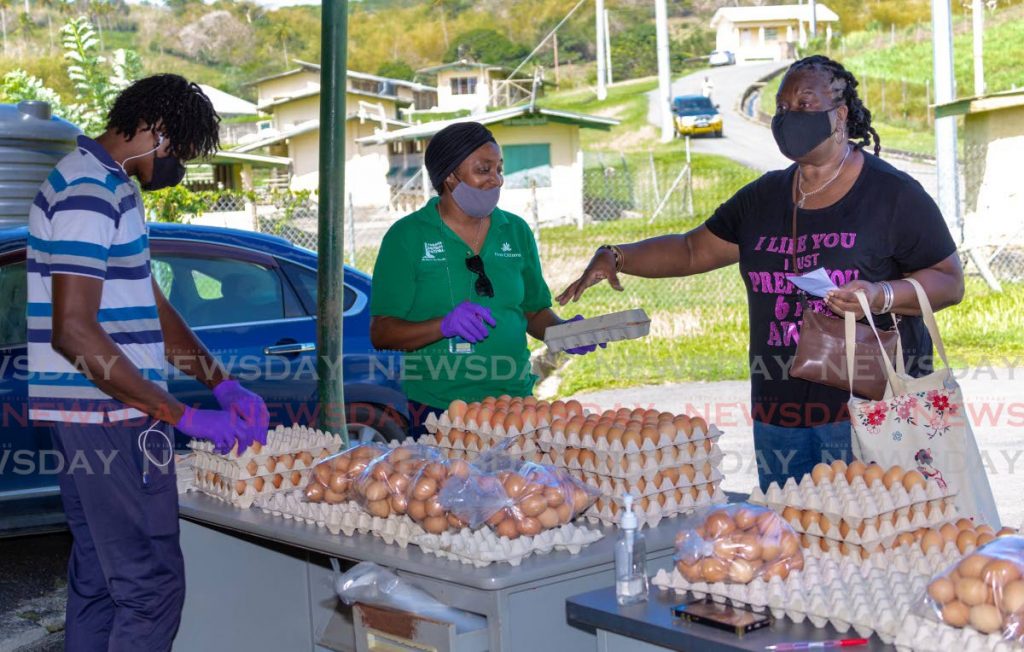State needs a better response to increase in feed prices

The situation with regard to feed prices for livestock farmers has worsened, with state-owned National Flour Mills (NFM) joining private entities that have already announced price hikes.
The impact of the increases – some as much as ten per cent – are such that retail associations have already warned consumers to expect inflation, while farmers have warned the viability of their operations is imperilled, even as they absorb some of the costs.
Strong concerns have been expressed by the president of the Agriculture Society Darryl Rampersad, the Association of TT Table Egg Producers vice president Dennis Ramsingh, the former president of the Sheep and Goat Farmers Association Shiraz Khan and Supermarkets Association of TT (SATT) president Rajiv Diptee.
Both Minister of Agriculture Clarence Rambharat and Trade and Industry Minister Paula Gopee-Scoon have reportedly been speaking with grain importers. But Mr Rambharat is also on record as saying not much can be done, while Ms Gopee-Scoon has called for forbearance, saying she expects “some sort of levelling off to normal prices.”
All sorts of reasons have been adduced for the increases: shipping costs, increased demand, China’s role in the market, the weather in South America, labour strikes in Argentina.
The World Agricultural Supply and Demand Estimates (WASDE) report for January 2020/21 says corn and soybean production have decreased, forcing prices up. Broiler, turkey, and egg production forecasts were lowered for 2021 as higher feed costs are expected to slow production growth.
The impact of all of this is pervasive. It’s not just limited to the private sector, as shown by NFM’s move. That entity initially held its hand but, after “investigating” the situation, followed the private sector.
Mr Rambharat says state land has been allocated for local feed production and the ministry is open to potential partnerships.
This is sensible. There is no reason why this country cannot generate its own feed supplies. Perhaps local resources at UWI can be drawn on to find a solution.
Such measures, however, will only make an impact in the long run, if at all.
Meanwhile, though Ms Gopee-Scoon is optimistic things will settle, it is clear that in the interval there will be a substantial cost to both consumers and the sector.
“It is the poor people who will be affected, as prices in milk, eggs, meats, cheese, butter and even fast foods such as KFC, Royal Castle, and others will be affected,” warned Ramsingh in January.
Ironically, the state-run Hope Farm in Tobago competes with private egg producers who face the same feed increases. Farmers have to compete with foreign meat imports that continue as normal.
The impact of unseasonal rainfall on food crop farmers, for which Mr Rambharat has announced $600,000 in support, out of a $9 million allocation for such settlements, is an illustration of just how precarious life is for farmers.
There is, therefore, need for the State to review its response to this matter of feed. To what use is the $500 million agriculture sector stimulus announced in the budget to be put?
There must be a balance that favours local farmers.


Comments
"State needs a better response to increase in feed prices"